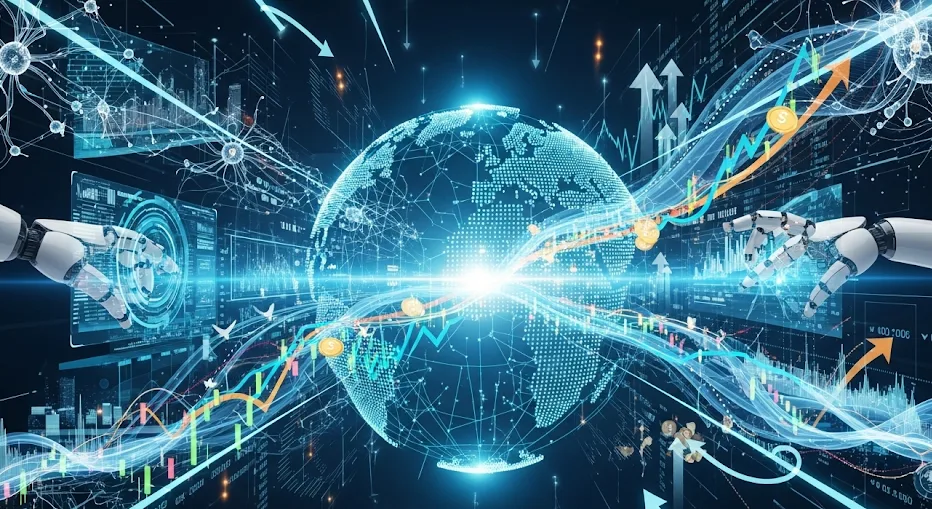
The rise of artificial intelligence is changing the way we live, work and connect — and nowhere is this shift more visible than in the gig economy. From food delivery to freelance design, gig work has become a mainstay of modern labour. But as AI tools become more capable and accessible, the landscape of short-term, on-demand work is undergoing a major transformation.
For millions of workers in the UK and beyond, this evolution brings both opportunity and uncertainty. In this article, we explore how AI is impacting the gig economy, which roles are changing, and what the future might hold for gig workers navigating a world increasingly powered by machines.
Understanding the Gig Economy Today
The gig economy refers to a labour market characterised by freelance, short-term or task-based roles, often facilitated by digital platforms like Uber, Deliveroo, Fiverr or Upwork. While the model offers flexibility and autonomy, it often comes with limited job security, no benefits, and variable income.
According to the UK’s Office for National Statistics, over 4.4 million people were engaged in gig work as of 2023 — a number that has steadily grown over the past decade. The appeal is clear: flexible hours, low entry barriers, and the ability to work from anywhere.
But now, with AI tools rapidly advancing, the gig model itself is being redefined.
How AI Is Reshaping Gig Work
AI is impacting the gig economy in two major ways: automation of tasks, and augmentation of worker productivity.
On one side, AI threatens to replace certain types of gig work altogether — particularly those that are routine, repetitive, or easily digitised. On the other side, AI is creating new types of gigs, and enhancing how freelancers deliver services, manage clients, and optimise their work.
Examples of AI-driven change include:
- Rideshare and delivery drivers are affected by developments in autonomous vehicles and route optimisation algorithms, which could reduce the need for human drivers in the long term.
- Content writers and translators are seeing their work partially automated by generative AI like ChatGPT or DeepL, which can now draft articles or translate text with increasing accuracy.
- Freelance designers and editors are using AI tools like Canva’s Magic Design or Adobe Firefly to accelerate creative work and meet tighter deadlines.
- Virtual assistants and admin freelancers now rely on AI scheduling, transcription and chatbot tools to streamline operations and manage more clients.
Rather than making all gigs obsolete, AI is more likely to change the nature of gig work, favouring those who adopt and integrate the technology into their services.
The Rise of New AI-Enabled Gigs
Interestingly, AI is also creating new gig roles that didn’t exist just a few years ago. From AI trainers to prompt engineers, platforms are now hiring freelancers to help develop and refine machine learning models.
There’s also growing demand for:
- Voice and image annotation specialists
- Data labellers for AI training
- AI-powered customer support agents
- Freelancers who offer “AI + human” hybrid services (e.g. AI-assisted writing, AI-driven SEO analysis)
Platforms like Fiverr and PeoplePerHour now feature entire categories dedicated to AI services. Workers who learn how to use AI as a tool, rather than fight against it, are gaining a competitive edge.
Risks and Challenges for Gig Workers
Despite the new opportunities, AI introduces serious challenges for gig workers — especially those in vulnerable or easily automated roles.
Earnings pressure is one concern. As AI tools lower the cost and speed of task completion, prices for certain freelance services (e.g. basic graphic design or article writing) are falling. Competition is rising, not just from other freelancers, but from machines.
Job displacement is another threat. If platforms can use AI to perform tasks once done by humans, workers may find themselves cut out of the process entirely.
And because gig work often lacks union representation, benefits or long-term contracts, many gig workers have limited protection when their roles are disrupted or replaced.
How Workers Can Adapt
In this evolving environment, adaptability is crucial. The gig workers who will thrive are those who treat AI as an enabler, not an enemy.
Key strategies include:
- Upskilling: Learning to use tools like ChatGPT, Midjourney, Jasper or Zapier can boost efficiency and expand service offerings.
- Specialising: Focusing on niche services that require human insight, judgement or creativity can make your work harder to replicate.
- Offering hybrid services: Combining AI output with personal editing, consulting or strategy creates unique value that machines alone can’t deliver.
- Branding and relationship building: Strong personal branding and loyal client relationships are harder to disrupt than anonymous gig work.
The future of gig work won’t belong to the cheapest or fastest — it will belong to those who bring unique perspective and adaptability to a changing toolkit.
The Role of Platforms and Policy
As AI changes the gig economy, platforms themselves must also evolve. There’s growing pressure for companies like Uber, TaskRabbit and Fiverr to provide better transparency, training and support to gig workers.
Some have already taken steps. For example, Upwork now offers AI education resources, while Freelancer.com has introduced AI-enhanced project suggestions. But more needs to be done to ensure gig workers are not left behind as platforms become more automated.
On the policy side, UK regulators are beginning to look at how AI impacts employment rights. As the line between worker and algorithm blurs, questions around fair pay, job classification, and data protection are becoming more urgent.
Reinvention Over Replacement
AI is undoubtedly reshaping the gig economy — but that doesn’t mean the end of gig work. Instead, we’re seeing a reinvention of roles, tools and expectations. Those who embrace the shift, invest in new skills, and learn to work alongside machines will be well-positioned to thrive.The gig economy has always been about flexibility. In the age of AI, that flexibility must now include the ability to adapt, learn and innovate. For gig workers willing to evolve, the future remains full of opportunity.

 How Hedge Funds Manipulate the Market: Unveiling Secrets
How Hedge Funds Manipulate the Market: Unveiling Secrets  Will the U.S. Dollar Remain the World’s Reserve Currency?
Will the U.S. Dollar Remain the World’s Reserve Currency?  How Oil Prices Affect Global Markets: Discover the Impacts
How Oil Prices Affect Global Markets: Discover the Impacts